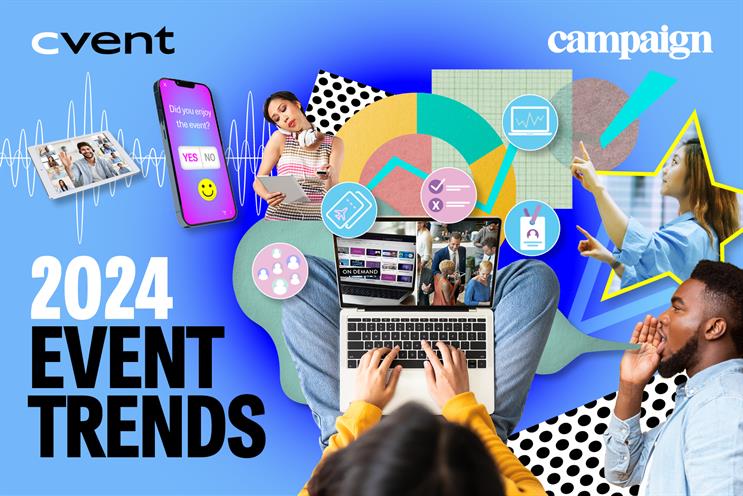
There is a lot of content out there, and brands must cut through the noise to thrive. Audiences crave meaningful engagement, and there is no stronger marketing channel than events for capturing attention and, most importantly, retaining it.
More than three-quarters (77%) of respondents trust brands more after interacting face-to-face with them at live events, according to The 2023 Freeman Trends Report, and a 2021 Forrester Report finds that 74% of event decision-makers say events are the best way to deepen customer relationships.
Meanwhile, the 2024 Freeman Trends Report reveals that 80% of respondents choose in-person events as the top source for discovering new products and services, some distance ahead of a company’s website which, as the first choice of 67%, comes in second place.
Events clearly help to gain trust and build deep relationships. This is marketing nirvana, fueling loyalty, demand, and awareness, and delivering valuable data.
The beauty of events is that they don’t only provide a couple of hours of opportunity. Instead, events provide year-round engagement opportunities using a series of digital touchpoints.
Before, during, and after: get event engagement right
Think of the event journey as a really great sandwich. The event itself is the filling, the centre point of the experience. But a finger-licking filling is nothing without delicious bread. The same goes for pre- and post-event engagement. All the components surrounding the event need to be spot-on to create a memorable experience.
Let’s start with pre-event action. How do you best build anticipation?
Pre-event marketing campaigns: Deploy a creative email campaign that leverages keynote speakers and gets attendees immersed in the world of the event. Also, consider creating a WhatsApp group or an event app for attendees to create a community and feed continuous engagement.
Integrate channels: All event promotion should have the same tone and messaging as your core branding across all channels. This means synchronising your marketing channels, from social media to email.
Provide pre-event resources: Build excitement through teaser videos or webisodes and, where possible, create short, exclusive content that includes guest speakers. According to the 2024 Freeman Trends Report, in-person events are seen as the most trustworthy sources of information (75% compared to only 9% for blog posts, for example), so keep attendees informed with relevant content, tailored to their interests.
During the event, the overall goal should be to create a positive, lasting impression of your brand.
Immersive experiences: The 2024 Freeman report found immersive experiences are the most important experience element for attendees (64%). Whether it’s VR and AR stations, interactive workshops, interactive gamification, or quizzes, ensure your event is steeped in immersive experiences to keep attendees engaged.
Develop compelling content: Think of speakers as the Pyramid Stage at Glastonbury. They are the main attraction but should never be the only attraction; there should be plenty of other stages to choose from. Provide interactive sessions, networking opportunities, and hands-on workshops. Also, engage multiple senses by incorporating scent, touch and taste into the event.
Use technology: From mobile apps and live polls to holographic displays, interactive projections, or 3D mapping, technology - whether simple or cutting-edge - can create fun, immersive experiences that enhance brand engagement.
The event journey doesn’t end when the event ends. Far from it.
Post-event activity provides the opportunity to build upon the connection you’ve made with your audience and create an engaged community throughout the year.
Maintain momentum: Share event highlights, key insights, and actionable follow-up content such as polls and surveys to maintain engagement.
Content hub: Create a platform for on-demand videos, speaker sessions, and other exclusive content from your event.
Event app: Create post-event communities and nurture ongoing relationships with attendees through an event app. This allows the event attendees to interact with one another, building community and loyalty between events.
Use digital touchpoints: Set up webinars and on-demand content to extend the event experience beyond the physical gathering, reach a wider audience, and provide opportunities for continuous engagement.
Personalisation: Introduce the personal touch by segmenting audiences to personalise and tailor communications to different groups.
Measuring engagement: find the good stuff
As well as engaging attendees, events are natural breeding grounds for high-value data. The attendee data you collect pre-, during and post-event will provide valuable insight into audience behaviour and preferences. Did attendees feel engaged? Did they feel valued? Were there enough interactive elements? What did they think of the products or services on show?
Capturing, measuring, and acting on that insight builds loyalty and drives sales, memberships, or donations. This data collection shouldn’t be limited to the physical event but should be a continuous exercise before, during and after.
Pre-event: Build a clear attendee profile through pre-event surveys and registration forms to obtain a picture of demographics, firmographics, and objectives.
During the event: Set up log-ins and check-ins, measure session attendances and ratings, and use interactive elements such as live polls, Q&As, and networking discussions to gather feedback and generate lead capture.
Post-event: You won’t know if you’re doing events right without finding out how attendees have engaged. Use post-event surveys that include ratings for elements such as speakers, content, and activities to obtain engagement scores.
All insight should be a learning experience: don’t plan the next event or personalise experiences until the data from the previous event has been thoroughly analysed.
Engage, engage, engage
Events are about connections, and connections deepen relationships. This means there is no more effective marketing channel for getting audiences to engage with your brand than events.
Delivering a memorable experience will drive engagement and more tools than ever exist to build an interactive and immersive event. By creating engagement opportunities before, during, and after events and collecting data throughout the journey, brands can better understand their audiences and shape more personalised marketing strategies across all channels.
Find tips and best practices for deepening engagement with prospects and customers through events in Cvent's eBook, Dialling Up Your Event Engagement.


